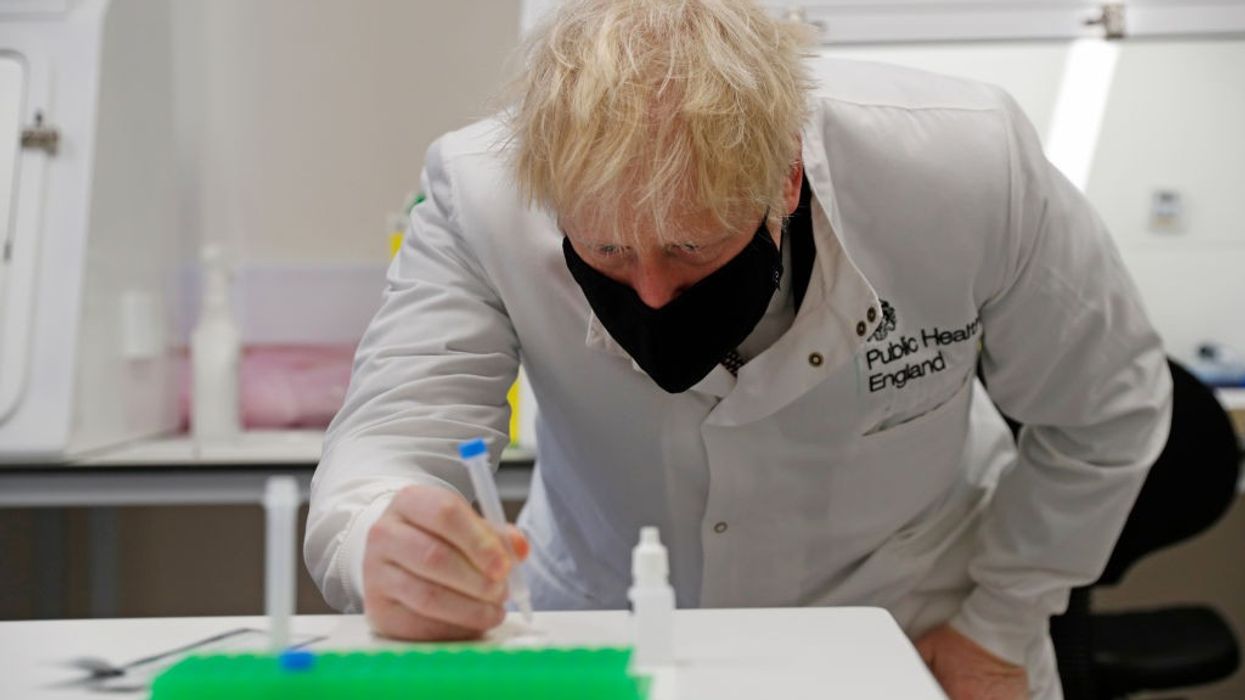THE UK opened new state-of-the-art labs to test the effectiveness of vaccines against new Covid-19 variants on Wednesday (5).
The government will invest £29.3 million in the new testing facilities at Porton Down through the Vaccines Taskforce in Public Health England, a statement said.
The funding will increase the site’s capacity from 700 to 3,000 blood samples tested a week in order to fast-track variant vaccines as these tests measure the levels of antibodies to Covid-19 that are generated by the vaccines.
It will also support the rapid development of vaccines designed to combat specific mutations of Covid-19.
“The UK has proven itself to be a world-class force in the production of Covid-19 vaccines, with the Oxford/AstraZeneca, Novavax and Valneva vaccines all researched, developed or manufactured on British soil," said health secretary Matt Hancock.
“We’ve backed UK science from the very start of this pandemic and this multi-million pound funding for a state-of-the-art vaccine testing facility at Porton Down will enable us to further future-proof the country from the threat of new variants."
While there is promising evidence existing vaccines are effective against variants such as those first identified in Kent and South Africa, work continues to test current and potential future variants of concern, the statement added.
An investment of £19.7m into the new facilities was originally approved in September 2020 to deliver increased capacity for the clinical testing of vaccines.
Minister for Covid-19 vaccine deployment Nadhim Zahawi said: “This funding will allow us to increase the testing capacity at Porton Down with a new innovative facility and ensure our Covid-19 vaccines are effective against any future variants of concern.
“The UK remains at the forefront of vaccine research and development, and today’s announcement will further cement us as a global frontrunner in our future response to Covid-19.”
Dr Jenny Harries, chief executive at the UK Health Security Agency (UKHSA), said: “A new variant that can escape the current vaccines is the greatest risk of a third wave. This new investment will help us stay one step ahead of the virus by doubling our capacity to test vaccine effectiveness against emerging variants.
“While we expect the existing vaccines to offer protection against new variants, particularly preventing serious illness and death, it is important that we continue to monitor the picture as it develops."
Porton Down is the secretive army base near Salisbury in south west England that identified the nerve agent used to poison a Russian ex-spy in 2018.
The Defence Science and Technology Laboratory -- its official name -- employs 3,000 scientists across a sprawling rural site.
It was founded in 1916 to counter German chemical attacks in World War I, which initially involved chlorine and then mustard gas and phosgene.





